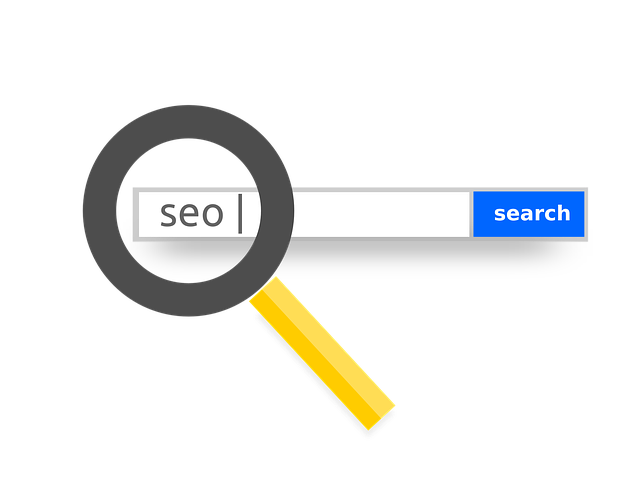Understanding International Technical SEO: A Global Perspective

In today’s interconnected world, understanding International Technical SEO is paramount for businesses aiming to thrive globally. It involves optimizing websites and digital assets for search engines across diverse markets and languages, ensuring consistent visibility and performance. This requires a deep dive into technical aspects such as site structure, URL configurations, schema markup, and mobile responsiveness, while also factoring in unique regional search patterns, language-specific keywords, and local ranking factors.
Technical SEO Training becomes an indispensable tool for navigating this complex landscape. It equips professionals with the knowledge to identify and rectify technical issues that may hinder global reach. By learning best practices tailored to international standards, SEO specialists can create robust, adaptable websites that resonate with diverse audiences. This strategic approach not only enhances online visibility but also fosters a seamless user experience across borders, contributing significantly to global business success.
The Role of Search Engines in the Digital Global Village

In today’s digital era, search engines have become the compass guiding folks across the vast labyrinthine landscape of global information. These powerful tools, driven by intricate algorithms, play a pivotal role in connecting users with relevant content, products, and services from around the world. As we navigate this interconnected digital village, understanding how search engines operate is crucial, especially for businesses aiming to thrive internationally. This is where Technical SEO Training steps in as a vital tool.
By focusing on optimizing websites for search engine visibility and performance, Technical SEO ensures that online businesses are not just found but also rank higher among competitors. It involves a deep dive into the technical aspects of search engine algorithms, from site speed and mobile-friendliness to structured data and XML sitemaps. This knowledge empowers professionals to implement strategies that enhance the overall user experience while aligning with the ever-evolving criteria set by major search engines like Google, Bing, and Yahoo.
Technical SEO Audits Across Borders: Challenges and Solutions

When conducting Technical SEO audits across borders, businesses face unique challenges due to varying digital landscapes and regulatory environments. One significant hurdle is ensuring compliance with local search engine optimization (SEO) best practices and guidelines, which can differ drastically from one country to another. For instance, a website optimized for U.S. search engines might not meet the criteria set by European or Asian counterparts, requiring continuous adaptation and localized Technical SEO training.
To overcome these challenges, international businesses should employ strategic solutions such as engaging regional SEO experts who understand local market nuances. Implementing multilingual content and optimizing websites for mobile-first indexing are also crucial steps. Additionally, utilizing robust SEO tools with global coverage can help identify and rectify technical issues across different domains and languages. Regular Technical SEO training tailored to a company’s international presence is essential in staying updated with industry trends and ensuring optimal website performance globally.
Optimizing for Multilingual Content and Localized Search

In today’s globalized digital landscape, optimizing for multilingual content and localized search is a crucial aspect of International Technical SEO. This involves creating and structuring content in multiple languages to cater to diverse audiences worldwide. By implementing effective localization strategies, businesses can ensure their websites are accessible and relevant to users speaking different languages. Technical SEO Training often includes guidance on best practices for handling multilingual URLs, HTML language attributes, and XML sitemaps to help search engines crawl and index content accurately.
To excel in this area, it’s essential to conduct thorough keyword research across target markets to identify regional variations and high-value terms. This enables the creation of localized content that resonates with specific audiences while adhering to each country’s unique search patterns and preferences. Additionally, setting up language targeting tags and utilizing schema markup for different languages can significantly enhance a website’s visibility in relevant local searches, ultimately driving more qualified traffic from international markets.
Building a Global Site Architecture: Best Practices

Building a global site architecture requires strategic planning and an understanding of diverse markets. One of the key best practices is to create a hierarchical structure that reflects the natural flow of information and user behavior across different regions. This involves segmenting your content based on language, region, or specific topics, ensuring each section is easily navigable for users and search engines alike. Implementing this approach allows for better internal linking, which is a crucial aspect of Technical SEO Training, as it improves crawlability and helps distribute link equity globally.
Additionally, leveraging structured data markup can enhance the visibility of your international content. By using schema.org vocabulary, you can provide search engines with detailed information about your pages, including their regional focus. This not only assists in local ranking but also enables rich snippets, making your site more engaging and trustworthy for users exploring global options. Efficient site architecture is a cornerstone of successful International Technical SEO strategies.
Implementing Structured Data and Schema Markup Internationally

Measuring and Analyzing Global SEO Performance

Measuring global SEO performance is an intricate task, especially for international businesses aiming to expand their digital reach. It requires a strategic approach that goes beyond traditional local keywords and content optimization. With a vast online landscape and diverse consumer behaviors across countries, Technical SEO Training becomes an indispensable tool for navigating this complexity. By implementing advanced analytics tools, professionals can gain valuable insights into user behavior, clickstream data, and regional trends.
This enables them to assess the effectiveness of global SEO strategies, identify high-performing pages, and pinpoint areas for improvement. Through in-depth analysis, businesses can optimize their websites for international audiences, ensuring relevant content reaches the right users across different markets. Ultimately, this data-driven approach facilitates informed decision-making, leading to enhanced online visibility and improved user experiences on a global scale.
